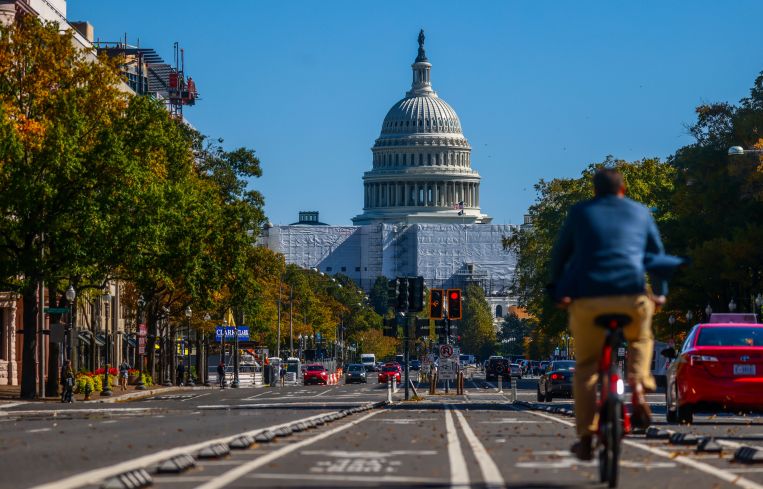DC Well Positioned to Withstand Climate Impacts on Property Values: Report
By Keith Loria September 14, 2023 11:15 am
reprints
Washington, D.C., is among the top 10 cities in the United States and Canada best prepared to weather the economic effects of climate change, according to the first-ever North American City Sustainability Study by CBRE.
The report also named New York, Boston, San Francisco, Denver and Austin, Texas, along with the Canadian cities of Montreal, Toronto, Ottawa and Winnipeg as being in the top 10 out of more than 60 markets looked at.
To arrive at the rankings, CBRE researchers evaluated North American cities’ emissions-reduction targets, policies and regulations, cost of retrofitting properties, vulnerability to climate change and climate-related disasters, green building stock, green financing and other factors.
Washington, D.C., stands out as a top city because the District has implemented sustainability measures, such as its energy efficiency initiatives and increasing use of renewable energy, which have helped protect property values and attract real estate occupiers. What’s more, 44 percent of the city’s commercial buildings are LEED certified.
“A combination of all factors we evaluated in the study contributed to the city’s strong performance,” Dennis Schoenmaker, executive director and principal economist for CBRE Econometric Advisors & Global Research, told Commercial Observer. “It is one of the cities with a low value at risk from both transition and physical climate risks, along with impressive mitigation and adaptation measures.”
One such initiative is DC Green Bank’s $7.5 million commitment to the District, which helps fund residential solar projects across the city. Mayor Muriel Bowser introduced legislation in 2018 establishing the DC Green Bank, a policy tool that utilizes public-purpose funding to attract private investment to expand renewable energy, lower energy costs, reduce greenhouse gas emissions, create green jobs and enhance resilience.
Additionally, D.C., has pledged to be carbon neutral by 2045 and offers a green bond program to fund climate-related projects.
“Although we did not rank the cities in the study, one of the factors we considered in the transition risk category includes public policy initiatives,” Schoenmaker said. “The number of policies didn’t influence the city performance; instead, it’s the implementation and impacts of these policies that place the city in the top 10 list.”
Considering the impact of climate change is top of mind for many real estate investors today, this is an important finding for those going forward.
Approximately 70 percent of real estate professionals cited reducing greenhouse gas emissions as a top organizational goal, with many cities having set goals to become carbon neutral or net zero by 2050, per the report.
“The transition to a low-carbon future is increasing the complexity of real estate decision-making,” Schoenmaker said. “Occupiers and investors have a host of new factors and costs to consider, including new regulations. Cities that show climate resilience will attract more occupiers looking to meet their own decarbonization goals and are likely to benefit from a halo effect on property values.”
Keith Loria can be reached at Kloria@commercialobserver.com.

![Spanish-language social distancing safety sticker on a concrete footpath stating 'Espere aquí' [Wait here]](https://commercialobserver.com/wp-content/uploads/sites/3/2026/02/footprints-RF-GettyImages-1291244648-WEB.jpg?quality=80&w=355&h=285&crop=1)

